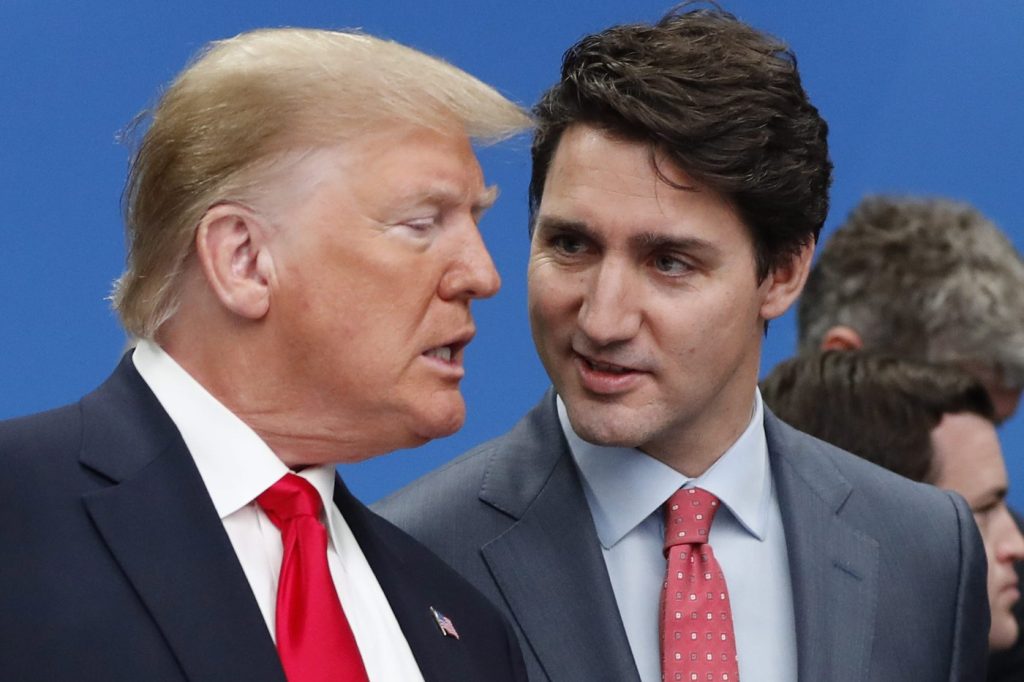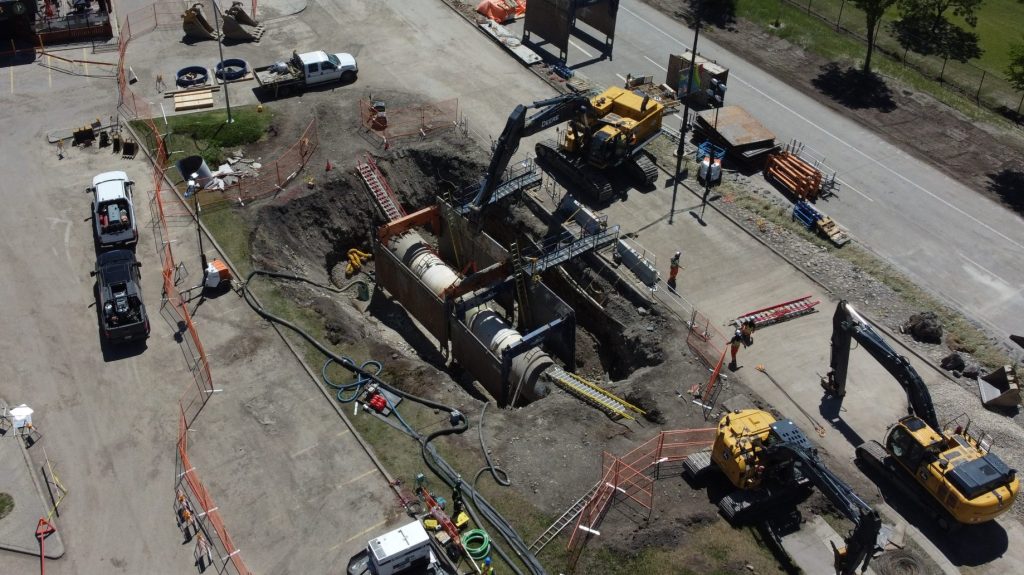‘Build relationships on both sides’: Provinces make push ahead of U.S. election

Posted Jun 22, 2024 4:00 am.
Last Updated Jun 22, 2024 7:42 am.
WASHINGTON — Provinces are reaching out to Democrats and Republicans alike to make their case for co-operation, bolstering efforts by the federal government to ensure Canada is prepared for any outcome in the upcoming United States election.
“I see provinces and Team Canada both ramping up their efforts,” said Laura Dawson, an expert on Canada-U.S. relations and the executive director of the Future Borders Coalition.
Prime Minister Justin Trudeau, whose Liberals came to power in October 2015, was criticized for being unprepared for the first Donald Trump presidency after the 2016 U.S. election.
Their relationship was notably rocky throughout the Republican leader’s four-year tenure.
The Liberal government is taking a more proactive approach this time around to bolster connections with both the Trump and Joe Biden camps as the tight presidential race continues.
Industry Minister François-Philippe Champagne is making regular visits south of the border as part of the Team Canada engagement strategy. Canada’s ambassador to the U.S., Kirsten Hillman, has been pounding the pavement from state to state along with business leaders and stakeholder groups.
Dawson said federal-level representatives are going to their American counterparts with topline statements about how “we build things together.”
Provinces, on the other hand, drill down on specifics in areas like hydroelectric power, agriculture issues, integrated supply chains in a particular sector and joint investments at the local and regional level.
“I think Canada really relies on the provincial representatives to get specific, to identify the areas where Americans and Canadians are working together,” she said.
Manitoba Premier Wab Kinew, accompanied by former premier and former Canadian ambassador to the United States Gary Doer, recently travelled to Washington, D.C., and New York City.
“The purpose of our trip was really to build relationships on both sides of the aisle,” Kinew said.
Top of mind for Canadians shaking hands with American counterparts is the looming review of the U.S.-Mexico-Canada Agreement in 2026. Both presidential candidates are selling protectionist policies that could cause uncertainty for Canadian trade.
During his presidency, Trump forced the renegotiation of the North American Free Trade Agreement and his administration brought in billions of dollars worth of tariffs, particularly on Chinese imports.
Biden largely kept those tariffs in place, despite promises to reverse them. There’s also been tension over the Biden administration’s Buy American procurement rules.
Kinew said his team wants to ensure it’s understood that trade with Manitoba is good for the U.S. and its citizens.
“If we make that self-interest argument to an American audience, that’s a very good foundation for us to have continued prosperity on both sides of the border,” he said.
It’s essential to maintain a constructive working relationship, said James Rajotte, Alberta’s senior representative to the U.S.
“The quality of life of people who live in Alberta is obviously very directly linked to policy decisions here and the trading relationship we have,” Rajotte said.
When navigating conversations with his American counterparts, Rajotte said, “you have to read your audience.”
In some talks, he might lead the conversation with Alberta’s record on reducing emissions. In others, Rajotte may focus on the role Canada and Alberta can play in energy reliability and security.
“On a lot of trade issues, the Trump administration and the Biden administration are not really that far apart,” he said.
Newfoundland and Labrador Premier Andrew Furey also travelled to Washington recently. His office said it was important to show that the relationship “is one characterized by complementary and not competitive interests.”
A key selling point for many Canadians is the country’s critical mineral supply.
“This is one area where even in the midst of all the election season heating up, there’s some bipartisan appeal,” Kinew said.
The Democrats want critical minerals to advance electrification and the climate agenda, Kinew added, and Republicans want it for defence applications and general economic development.
“We are now seeing great interest in our Ontario critical minerals and nuclear power advantages among our partners in the United States,” David Paterson, the province’s representative in Washington, said in an emailed statement.
Dawson said Canadians need to focus on a key word that resonates with Americans: security. That can mean energy security, financial security or even Arctic security, she said.
“Any (phrase) that has ‘security’ in it has much more attention than just ‘we build things together.'”
This report by The Canadian Press was first published June 22, 2024.
Kelly Geraldine Malone, The Canadian Press








